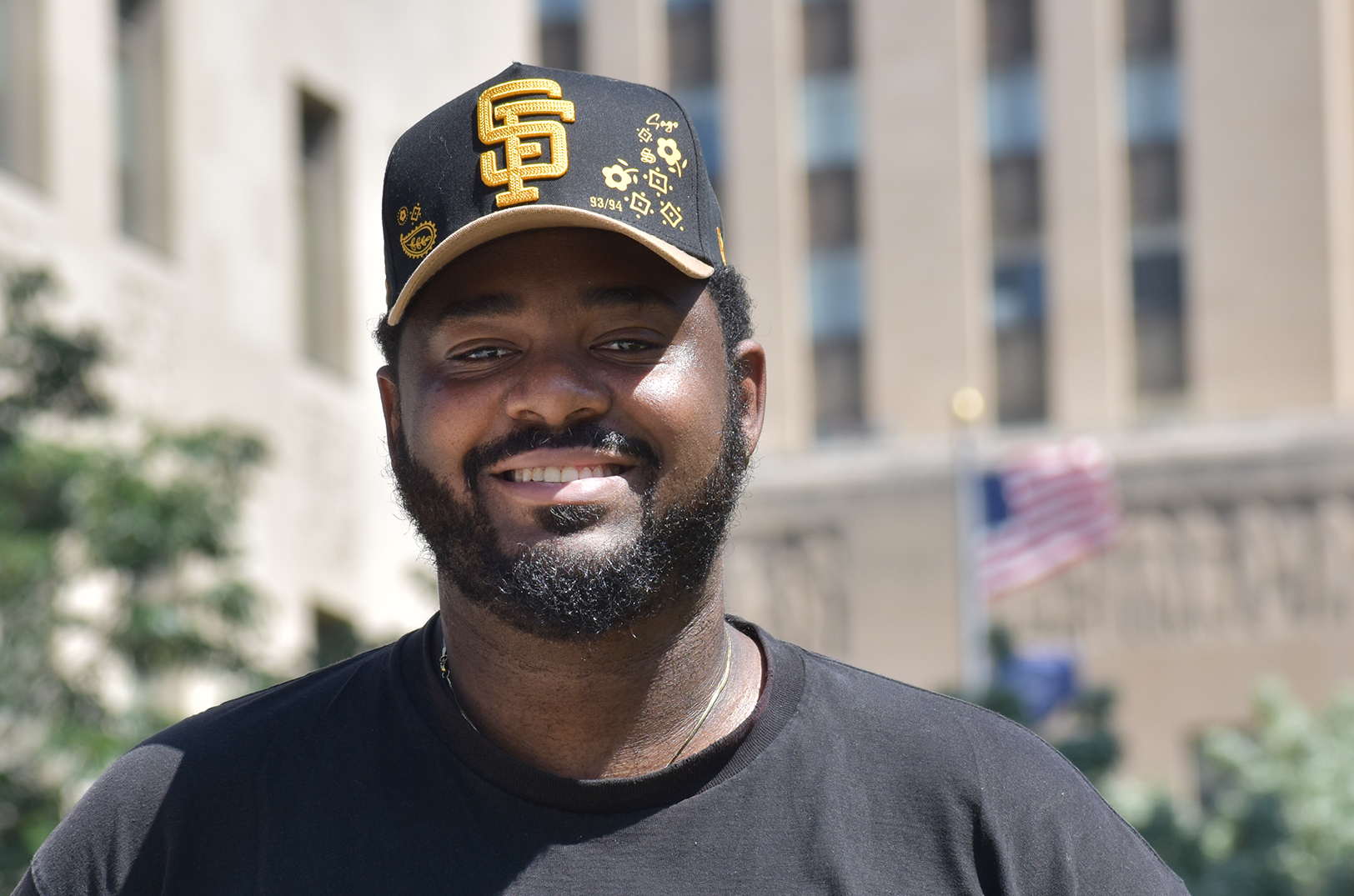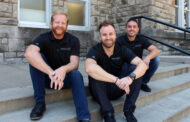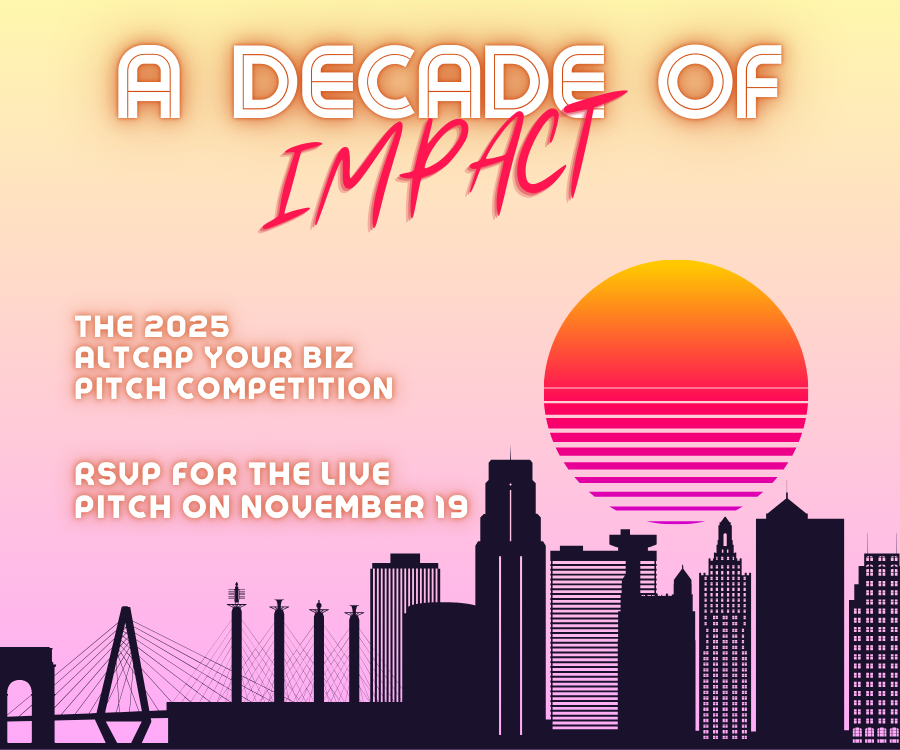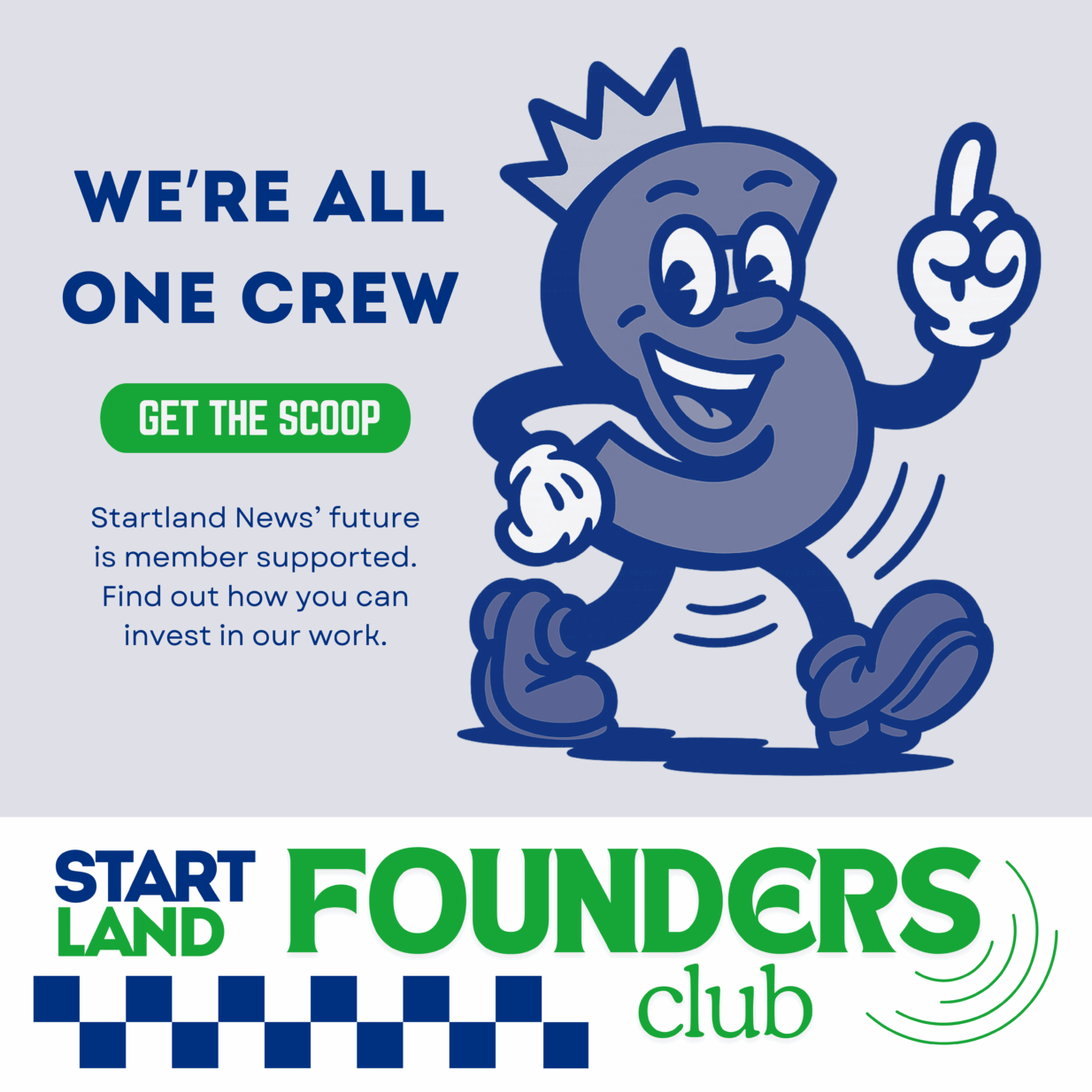A fractured news and social media ecosystem driven by biased algorithms makes it more difficult than ever to confidently vote based on facts — or even just understand the news of the day, said Mychal Shaw, touting the rapidly increasing but evergreen need for his civic literacy app.
“I was raised in a family of action-takers,” said Shaw, founder and CEO of Uwazi.AI. “And that requires a certain level of introspection when it comes to something as potentially volatile as politics.”
His Kansas City-built education and engagement platform aims to break down complex ballot language, verify political data, and connect users to personalized voting plans, non-partisan news, and local events.
Uwazi — a Swahili word meaning transparency — represents Mychal Shaw’s core belief that true progress begins with openness and is sustained by integrity.
“We envision a future where data is not hoarded but shared, where systems are built to serve communities with honesty and intention, and where every voice — especially those historically unheard — is centered in the design of the tools that shape our world.”
“It was eye opening once we started discovering where the gaps existed — where people were voting against their own interests because of a lack of accurate information,” Shaw said. “I knew we needed to find a way to pull people who are primarily sourcing their decisions from social media into an app that could actually help make better, more confident choices going into the polls.”
With more than 1,000 beta users, he said, the startup is taking a big leap this week, opening a pre-seed round Tuesday ahead of its product launch and planned expansion to cities like Kansas City, St. Louis and Oklahoma City.
Click here to learn more about the consumer-facing Uwazi.AI app, which features legislation tracking, sample ballots, a civic assistant, and more.
Democracy can’t work, Shaw emphasized, if people can’t access truthful information about the communities around them. The app specifically targets Millennials and older Gen Zs who might not recognize the importance of challenging ballot measures or judicial retention races, alongside higher-profile races, he added.
“I had a lot of friends who were angry about how the 2024 election turned out; they’d posted about it online but then didn’t actually vote,” said Shaw. “Whether you think your vote doesn’t matter or not, representative democracy is an attempt at a perfect system for imperfect people.”
It’s a personal cause for the founder, he said, noting he grew up among elected officials and others who served their community. His mother, Ryana Parks-Shaw, represents Kansas City’s 5th District, a community in which she and her family have called home for nearly three decades. (She currently serves as mayor pro tem and this summer announced her candidacy for mayor.)

Mychal Shaw, founder and CEO of Uwazi.AI, speaks during a April 2025 World Cup town hall event organized by KCMO’s Small Business Task Force; photo by Taylor Wilmore, Startland News
“You don’t have to go back that far to find a time when African Americans were — if not outright prevented — discouraged from voting,” Shaw said. “Our history is rooted in the powerful using misinformation and a lack of knowledge within a certain space to manipulate voter outcomes.”
At its core, Uwazi.AI makes civic engagement understandable for everyone, regardless of background or education, he continued, noting the platform isn’t just intended to help users navigate national issues like the current federal government shutdown, but to also dive deeper into local issues like crime, infrastructure and transportation.
“The extreme left feels like they’re not being heard. And the extreme right feels the exact same way,” said Shaw. “Most people, the average citizens, are somewhere in the middle — and they swing back and forth, struggling to find ways to get the facts in their communities.”
Click here to join the Uwazi.AI waiting list.
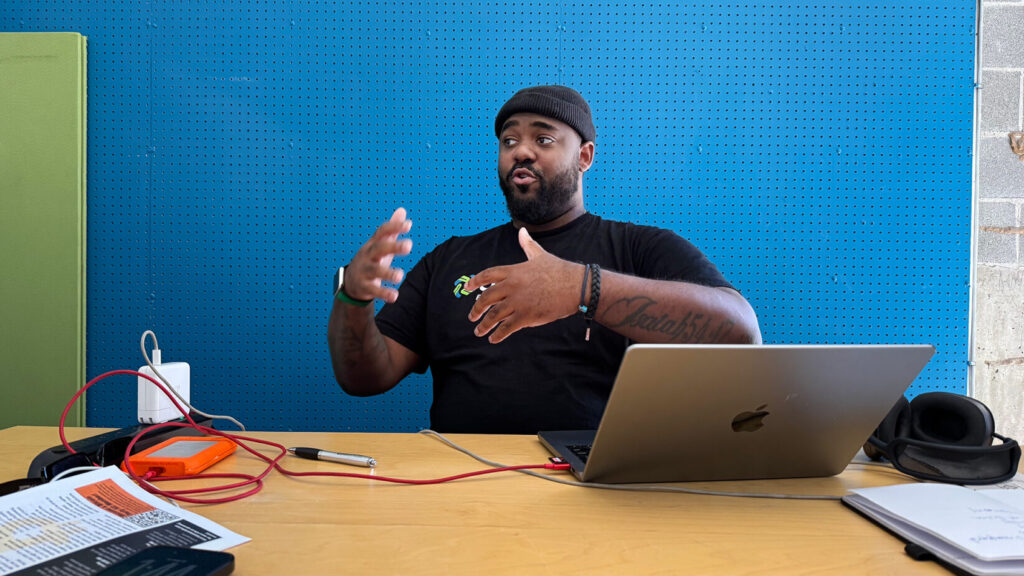
Mychal Shaw, founder and CEO of Uwazi.AI, discusses the data play within his Raia Institute, a nonprofit research and impact engine, from a workspace at Keystone CoLab; photo by Tommy Felts, Startland News
Scoring impact
Behind the scenes, Uwazi.AI is powered by the Raia Institute, a nonprofit research and impact engine helmed by Shaw as executive director.
Raia (Swahili for “community”) conducts applied civic research using RAG 1.o to analyze legislation, forecast policy impact, and uncover trends in voter behavior and public sentiment, he explained. Its engine collects real-time community insights while keeping users engaged with interactive, accessible questions that reward participation.
“It’s the Duolingo for civic literacy,” Shaw said. “Think of it as gamified education on politics.”
Data then feeds directly into its research models — enabling nonprofits, universities, and governments to design more equitable, data-informed civic strategies at the neighborhood level, he explained.
A significant component: The Ria Score, which indicates how well people in a given community are participating in democracy.
“One of the key research points, for example, is that cities with more affluent, better educated voters, for lack of better words, and higher voter turnout tend to receive 20 percent more funding and infrastructure support from the state and federal levels of government,” Shaw said. “Cities and municipalities that access these scores for their communities can use that data to reach for additional funding.”
Built for stronger measurement and impact, the Raia Institute allows the founder to embrace a secondary revenue model targeting partners from local governments, universities and nonprofits, he explained.
The platform includes features like customizable dashboards, RSVP and attendance tracking, volunteer management, pulse survey integration, real-time reporting, grant output tracking, and event analytics.
“There are so many opportunities for B2B traction here that just come naturally without me having to sell the product,” Shaw said. “A lot of nonprofits are already trying to do civic engagement measurements, but they’re still trying to get the job done with paper.”
Building in sustainability
A member of the 2025 LaunchKC Social Venture Studio cohort, Uwazi.Al has seen pivots in structure and strategy since joining the program, Shaw said, acknowledging conversations with fellow social entrepreneurs proved invaluable in answering lingering questions about sustainability.
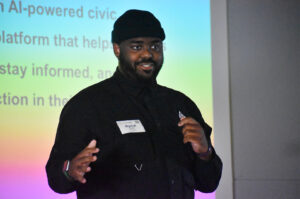
Mychal Shaw presents his company Uwazi.AI during a LaunchKC Social Venture Studio event in May 2025 at Keystone CoLab; photo by Taylor Wilmore, Startland News
The soon-to-launch version of the app features a freemium option, along with a paid monthly or yearly subscription with extra features. An additional B2B play behind the scenes offers an entry point for advertisers and partners that might require a custom platform.
“I knew the B2C side would stay, but I just didn’t know how to monetize the platform fairly,” he said. “That was something I was able to rework in the cohort, between talking through everything with other founders or leaders of the program.”
Shaw also recognized the need to keep a wide range of users active on the platform year-round, not just in the weeks leading up to a high-pressure vote, he said.
“For this to be sustainable, people have to participate in democracy outside of the standard election season,” Shaw said. “That’s not only going to make a huge difference for Uwazi, but also for our communities who benefit from a more civically literate voting base — people who are going to integrate themselves into policy more comfortably and hold their leaders accountable.”





